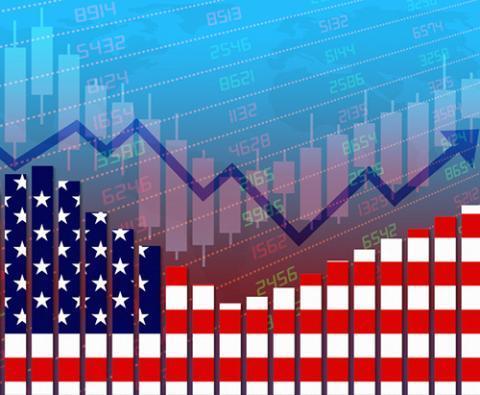U.S. confidence climbs to two-year high in January
American consumers are feeling more confident than they have in years amid slowing inflation and a strong labor market.
The Conference Board’s Consumer Confidence Index rose for the third consecutive month, to 114.8 in January, up from a revised 108.0 in December. The reading was the highest since December 2021. Average 12-month inflation expectations fell to 5.2%, the lowest since March 2020 (4.5%).
“January’s increase in consumer confidence likely reflected slower inflation, anticipation of lower interest rates ahead, and generally favorable employment conditions as companies continue to hoard labor,” said Dana Peterson, chief economist at The Conference Board.
The gain in confidence was seen across all age groups, but was largest for consumers 55 and over. Also, confidence improved for all incomes groups except the very top, with the exception of households earning $125,000-plus, which saw a slight dip.
“January’s write-in responses revealed that consumers remain concerned about rising prices although inflation expectations fell to a three-year low,” Petersons said. “Buying plans dipped in January, but consumers continued to rate their income and personal finances favorably currently and over the next six months.”
The Present Situation Index — based on consumers’ assessment of current business and labor market conditions — surged to 161.3 from 147.2 last month. The Expectations Index — based on consumers’ short-term outlook for income, business, and labor market conditions—improved to 83.8 in in January, up from a revised reading of 81.9 in December.
“Assessments of the present situation rose in January, buoyed by more positive views of business conditions and the employment situation,” Peterson said. “Furthermore, when asked to assess their current family financial conditions (a measure not included in calculating the Present Situation Index), the proportion reporting ‘good’ increased while those saying ‘bad’ fell. This suggests consumers are starting off the year in good spirits about their current finances.”
Consumer expectations for the next six months increased slightly in January, due to receding pessimism around future business conditions, labor market, and income prospects, according to Peterson. Expectations that interest rates will rise in the year ahead plummeted to just 41.5%. Consumers expecting stock prices to be higher in the year ahead retreated slightly after surging in December but remained near three-year highs.
Average 12-month inflation expectations fell to 5.2%, the lowest since March 2020 (4.5%).
Here are other findings from the January report.
Present Situation
Consumers’ assessment of current business conditions was more positive in January.
- 22.5% of consumers said business conditions were “good,” up from 21.1% in December.
- 14.2% said business conditions were “bad,” down from 17.2%.
Consumers’ appraisal of the labor market was also more positive in January.
- 45.5% of consumers said jobs were “plentiful,” up from 40.4% in December.
- 9.8% of consumers said jobs were “hard to get,” down from 13.1%.
Expectations Six Months Hence
Consumers were, on balance, slightly less optimistic about the short-term business conditions outlook in January.
- 16.6% of consumers expect business conditions to improve, down from 18.7% in December.
- However, only 16.0% expect business conditions to worsen, down from 17.8%.
Consumers’ assessment of the short-term labor market outlook was slightly less pessimistic in January.
- 16.0% of consumers expect more jobs to be available, down from 17.6% in December.
- 15.3% anticipate fewer jobs, down from 18.4%.
Consumers’ assessment of their short-term income prospects was, on balance, less pessimistic in January.
- 16.4% of consumers expect their incomes to increase, down from 18.3% in December.
- 11.5% expect their incomes to decrease, down from 13.6%.
The monthly Consumer Confidence Survey, based on an online sample, is conducted for The Conference Board by Toluna, a technology company that delivers real-time consumer insights and market research through its innovative technology, expertise, and panel of over 36 million consumers. The cutoff date for the preliminary results was January 22.



